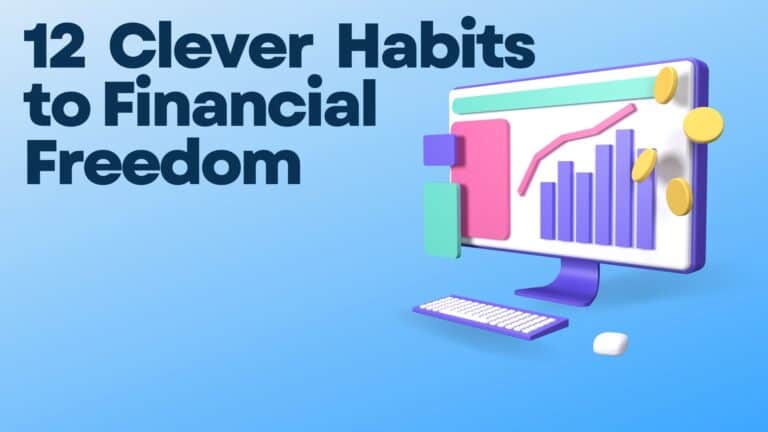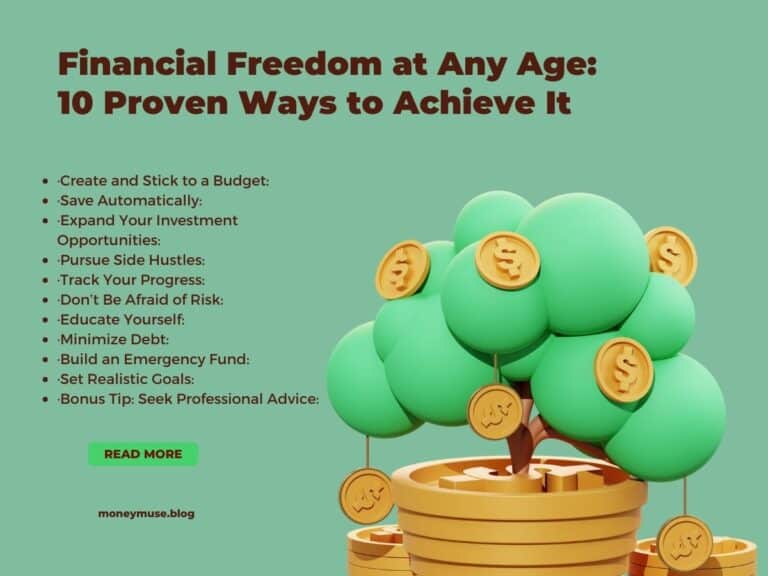Mastering Your Money Mindset: The Quantum Leap to Financial Freedom
Introduction: Why Your Thoughts Matter More Than Your Bank Balance
Have you ever wondered why some people seem to attract wealth effortlessly while others struggle despite their best efforts? The answer might surprise you: it’s all in the mind. Recent studies show that a staggering 88% of self-made millionaires credit their success not to financial knowledge, but to their mindset.
This article explores an innovative approach to personal finance that combines psychological insights with principles inspired by quantum physics. While this may sound complex, don’t worry – we’ll break everything down into simple, actionable steps that anyone can understand and apply.
Addressing the Skeptics: Is This Just Wishful Thinking?
Before we dive in, let’s address the elephant in the room: skepticism. It’s natural and healthy to question new ideas, especially when they challenge our long-held beliefs about money. You might be thinking, “How can simply changing my thoughts affect my bank account?”
It’s a fair question. While the approach we’re about to explore isn’t magic, it is backed by scientific principles:
- Neuroplasticity: This is the brain’s ability to reorganize itself by forming new neural connections. In simple terms, our thoughts can reshape our brains. A study from the University of British Columbia found that optimism correlates with better financial outcomes – not just because optimists take more risks, but because they’re better at recognizing opportunities.

Neuroplasticity and Your Money Mindset
Neuroplasticity isn’t just about optimism – it’s a powerful tool for reshaping your entire relationship with money. Consider this: every time you catch yourself thinking, “I’m terrible with money,” you’re reinforcing neural pathways that support this belief. But here’s where neuroplasticity comes in: you can consciously create new, more empowering pathways.
Try this exercise: Whenever you notice a negative money thought, pause and reframe it. For instance, change “I’m bad with money” to “I’m learning to make smart financial decisions.” With consistent practice, you’ll rewire your brain’s approach to finance. Dr. Tara Swart, neuroscientist and author of “The Source,” explains: “By repeatedly thinking and acting in new ways, we can carve out new neural pathways. This means we can change our attitude towards money at any age.”
- The Observer Effect: This principle from quantum physics suggests that the act of observation affects the observed phenomenon. In our daily lives, this translates to the idea that what we focus on tends to expand. When we consistently focus on financial opportunities rather than limitations, we’re more likely to notice and act on those opportunities.
- Psychological Studies: Numerous psychological studies have shown the power of mindset in achieving goals. For instance, a study published in the Journal of Clinical Psychology found that people who vividly describe their goals in written form are 1.2 to 1.4 times more likely to successfully accomplish them.
While changing your mindset won’t magically make money appear, it can significantly impact your financial decisions, risk tolerance, and ability to spot and seize opportunities. Let’s explore how.
The Current Landscape: Why Traditional Advice Falls Short
In a world where 78% of Americans live paycheck to paycheck, and financial stress is cited as the leading cause of relationship breakdowns, it’s clear that conventional financial wisdom isn’t cutting it. We’ve all heard the standard advice: budget carefully, invest wisely, and cut unnecessary expenses. But if information alone were the answer, we’d all be financial experts by now.
The problem is that traditional financial advice often treats money as something separate from our thoughts and emotions. It’s like trying to lose weight by only counting calories without considering the psychological factors that influence our eating habits. To truly transform our financial lives, we need to address the root cause: our relationship with money itself.
The Mind-Money Connection: Rewiring Your Financial Brain
Imagine your mind as a powerful computer, constantly running programs that influence your financial decisions. Many of these programs were installed during childhood – perhaps you heard phrases like “money doesn’t grow on trees” or “rich people are greedy.” These early experiences shape our subconscious beliefs about money, which in turn affect our financial behaviors.
Money Scripts: Limiting Beliefs vs. Empowering Reframes
| Limiting Belief | Empowering Reframe |
|---|---|
| Money is the root of all evil | Money is a tool that can be used for good |
| I’ll never be good with money | I’m learning and improving my financial skills every day |
| Rich people are greedy | Wealth allows for greater generosity and impact |
| I don’t deserve to make more money | I provide value and deserve fair compensation |
| There’s never enough money | There are always opportunities to increase my income |
The good news? Just as you can update software on your computer, you can update your mental “money software.” Here’s how:
- Identify Your Money Scripts: Take a moment to reflect on your earliest memories of money. What did you learn from your family? What beliefs do you hold about wealth and wealthy people? Awareness is the first step to change.
- Challenge Limiting Beliefs: Once you’ve identified your money scripts, question them. If you believe “I’ll never be good with money,” ask yourself: Is this true? What evidence do I have for and against this belief?
- Visualize Financial Success: Spend a few minutes each day visualizing your ideal financial situation. Make it as vivid and detailed as possible. This isn’t mere daydreaming – it’s training your brain to recognize and pursue opportunities aligned with your vision.
- Practice Gratitude: Regularly acknowledging what you already have creates a mindset of abundance rather than scarcity. Try keeping a daily “financial gratitude journal.”
- Reframe Setbacks: Instead of viewing financial setbacks as failures, see them as learning opportunities. Ask yourself: What can I learn from this experience? How can I use this knowledge to make better decisions in the future?

Real-World Success Stories
Let’s look at how these principles play out in real life:
- The Debt-Free Dreamer: Sarah, a 32-year-old teacher, had $40,000 in credit card debt and constantly told herself she’d always be in debt. After learning about mindset work, she started visualizing herself debt-free and repeating the affirmation, “I make smart financial choices.” Within two years, she had paid off her debt and started an emergency fund. “Changing my self-talk was the first step,” Sarah says. “It gave me the confidence to create a payoff plan and stick to it.”
- The Reluctant Investor: Tom, a 45-year-old graphic designer, always believed investing was too risky. He reframed his thinking from “Investing is gambling” to “Investing is a tool for growing wealth.” This shift led him to educate himself about low-risk investment options. He started with small investments in index funds, gradually increasing his contributions. Five years later, his investment portfolio had grown significantly, providing him with a sense of financial security he never thought possible.
- The Abundance Entrepreneur: Maria grew up believing “money is the root of all evil.” This belief held her back from charging fair prices for her freelance work. Through mindset work, she reframed her view to “Money allows me to make a bigger impact.” This shift not only allowed her to raise her rates but also inspired her to start a nonprofit, using her increased earnings to fund community projects.
These stories illustrate how changing your money mindset can lead to tangible financial improvements. They show that whether you’re dealing with debt, hesitant about investing, or struggling with charging what you’re worth, a shift in perspective can be the catalyst for real-world financial success.
Practical Applications: Putting Mindset to Work
Now that we’ve explored the principles, let’s look at how to apply them in real-life financial situations:
Budgeting with a Positive Spin
Instead of viewing budgeting as a restrictive practice, see it as a tool for aligning your spending with your values and goals. Ask yourself: How can I allocate my resources in a way that brings me joy and moves me closer to my financial goals?
Investing with Confidence
Many people avoid investing because they fear losing money. Reframe this by focusing on the potential for growth and learning. Start small, educate yourself, and view each investment as an opportunity to expand your financial knowledge.
Debt Management
Rather than feeling overwhelmed by debt, view it as a temporary situation that you’re actively working to change. Create a debt repayment plan and celebrate each milestone along the way, no matter how small.
Income Expansion
Instead of fixating on the limitations of your current income, ask yourself: How can I create value for others? This mindset opens you up to opportunities for side hustle, career advancement, or entrepreneurship.
The Ripple Effect: Beyond Your Bank Account
As you shift your money mindset, you’ll likely notice positive changes in other areas of your life:
- Improved Relationships: As financial stress decreases, many people find their personal relationships improve.
- Enhanced Career Opportunities: A positive money mindset often translates to increased confidence at work, potentially leading to advancement opportunities.
- Better Health: Reducing financial anxiety can have significant benefits for your physical and mental well-being.
- Increased Generosity: As you shift from a scarcity mindset to one of abundance, you may find yourself more inclined to give back to others.
7-Day Money Mindset Challenge
Your 7-Day Money Mindset Challenge
Ready to put these ideas into action? Try this week-long challenge:
- Day 1: Write down your current beliefs about money. Challenge one limiting belief.
- Day 2: Start a financial gratitude journal. List three things you’re grateful for financially.
- Day 3: Visualize your ideal financial future for 5 minutes.
- Day 4: Reframe a past financial setback as a learning opportunity.
- Day 5: Identify one way you can create more value for others.
- Day 6: Review your budget with a focus on aligning spending with your values.
- Day 7: Take one small, calculated financial risk (e.g., investing a small amount, or negotiating a bill).
Before
SCARCITY Fear Lack Struggle Debt Worry Stress Limitation Anxiety PovertyAfter
ABUNDANCE Opportunity Growth FREEDOM Prosperity Success Confidence Wealth Possibility EmpowermentConclusion: Your New Financial Reality Awaits
Changing your money mindset isn’t about magical thinking – it’s about aligning your thoughts, emotions, and actions to create real change in your financial life. By combining psychological insights with practical financial strategies, you can transform your relationship with money and open yourself up to new possibilities.
Remember, this is a journey, not a destination. Be patient with yourself, celebrate small wins, and stay curious. Your new financial reality is closer than you think – and it all starts with a shift in perspective.
Further Reading:
- “Mindset: The New Psychology of Success” by Carol S. Dweck
- “Your Money or Your Life” by Vicki Robin and Joe Dominguez
- “The Psychology of Money” by Morgan Housel
Remember: While mindset is crucial, it’s not a substitute for sound financial practices. Always consult with a qualified financial advisor for personalized advice on your specific situation.
Author Bio:
Garnet is actively working to achieve financial freedom. As the author of and founder of WealthSolo, Garnet Smith is passionate about empowering others to take control of their financial futures through education and actionable strategies.







